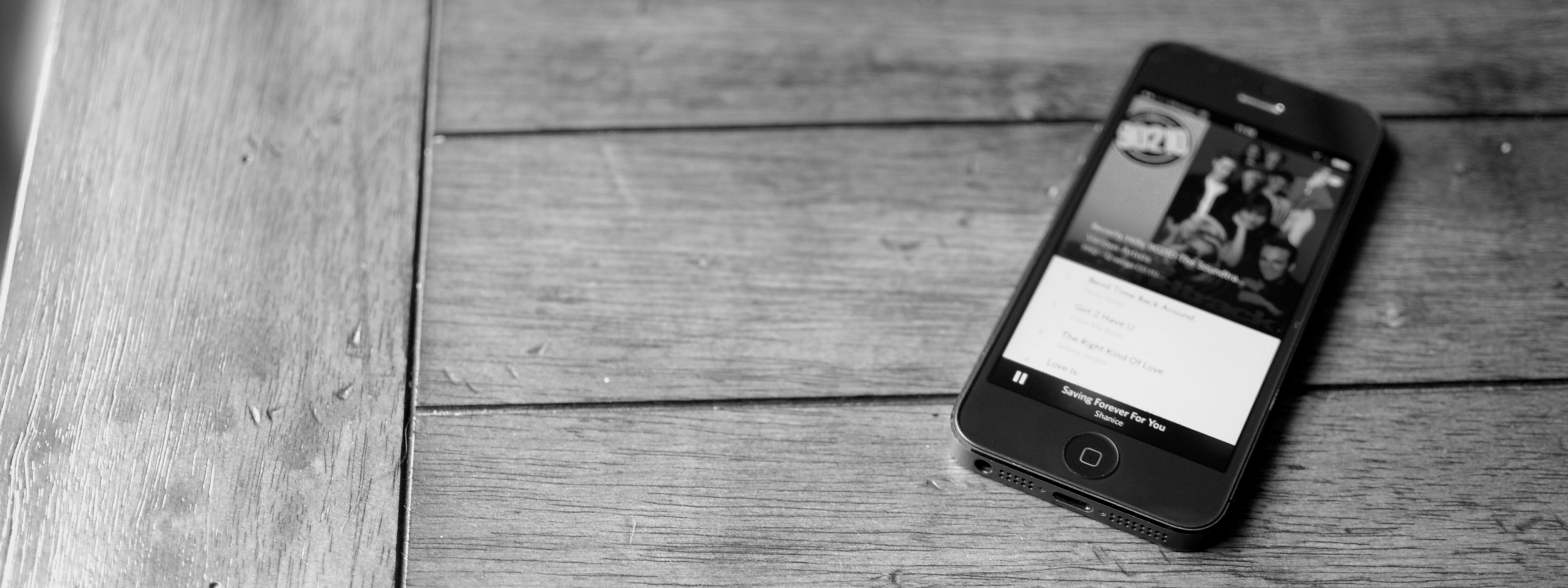A couple of years ago, I started a project to import all of my CDs into my iTunes library1. In a not insignificant number of instances while opening the jewel case of the next archiving victim, I find myself asking, “why in the world did I buy this?” Honestly, this could probably happen to any of us, if we dare step back into our collection for an aural jaunt down memory lane. The shock and awe is not necessarily the absurdity of each egregious offense, but instead the magnitude of the collection of absurdity. Suffice it to say, I had a bit of a music addiction in my formative years.
Financial records, if they were available, would exhibit an addiction that went unchecked by my relatively affluent middle class upbringing. Unhelpful in stemming this addiction was the proliferation of the music club mail-order offers whose heyday coincided all too destructively with my obsession with popular (and unpopular2) music. With a mixture of patience and urgency, I ultimately found a way to acquire every bit of music I ever desired. If I’d had better taste, this would not be a problem.
But taste, as it pertains to music and many other arts, often takes a back seat to personal enjoyment – and rightly so. The music, after all, was there to be consumed by those who enjoyed it. And whether or not I would get the same enjoyment out of every bit, byte, note and rhythm contained on any or all of those compact discs if I to listened to them today is missing the point. That said, I can’t help but shudder3 when I see the stacks of CDs, waiting to be discarded – stacks that might as well be stacks of dollar bills, burning before my very eyes.
Amidst the burning flames of my lost fortune, I started thinking. Does the digital age – currently dominated by iTunes but certainly dignified by efforts from Amazon and others – really present a better alternative? Is there a song that I downloaded in 2005 that would feature prominently in any modern playlist I might create? Have I extracted 99 cents or $1.29 worth of enjoyment of that song? Is it worth the future cost of storage that I’ll pay to keep it around4? Does anyone have any particular rights to my collection when I’m gone – the same rights I presume they would have with my CD collection?
And it struck me that perhaps the answer to all of these questions is the increasingly popular subscription based music service. In the subscription model, you pay a monthly fee – currently the going rate is around $10/month – and you have unlimited access to the entire collection of music offered by your respective provider. Stop paying the monthly fee and you lose your “collection”. Some of the services offer mobile apps that allow you to download music to your device so you don’t always have to have a connection to enjoy your music. I don’t currently know of any such service that allows you to burn your collection to a CD, for obvious reasons.
Staring at my dusty and dormant collection, I decided to take the leap. In my back of the brain, back of the envelope calculation, I decided I spend more than $120/year buying music from iTunes (which was probably my average monthly outlay during my peak CD-buying). Even if I decided to buy/download only my favorite albums/songs, I’d still probably at least break even – just in saving myself from impulsive guilty pleasure purchases. And, looking ahead, I decided this was an investment to prevent future regret. Because even though when I purchase/download, I’m buying something that’s mine forever, what does that something really mean to me as forever approaches?
By revisiting my past, I’ve learned to let go of old habits of impulse buying. But I’ve also revitalized that part of me that loves discovering and then tirelessly consuming new music. To many, the social aspect of any online music service is considered the holy grail of music discovery. To me, it’s the unlimited put it on, let it play, and just listen nature of streaming music. It’s what radio used to be – the radio that died when advertising, demographics, and corporate consolidation destroyed the art of the DJ – curation. In the subscription-based world, limitless is your DJ. Choose an artist, a song, a friend, your past – any or all of these can curate your listening experience.
Editor’s Note: This post was originally published on thedustindotcom.
- That’s right, started – I’m still going. In my defense, I only work on it in pockets when I know I’ll be chained to my makeshift dining room office desk (and bother to break out the almost decade old Thinkpad X41 tablet + docking station).↩
- I could write a series of posts on the oddities, but just to give you a taste: UNV, Kevin Edmonds, the Beverly Hills 90210 soundtrack.↩
- Bethany shudders when she sees them too, but for an entirely different reason that stems more from anger and annoyance than of the loss that I feel.↩
- Because you know, hard drives cost money.↩
